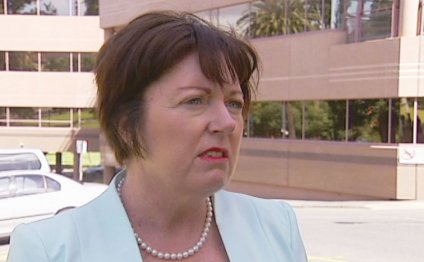
Mental Health Youth Services
 Addressing the complex mental health needs of children, youth, and families is fundamental to the future of Mississippi. Nearly 35, 000 of Mississippi’s children and youth have severe and persistent mental health needs which can impact every aspect of their lives.
Addressing the complex mental health needs of children, youth, and families is fundamental to the future of Mississippi. Nearly 35, 000 of Mississippi’s children and youth have severe and persistent mental health needs which can impact every aspect of their lives.
Mental health is important at every stage in life. A child’s mental health can affect their mood and behavior and the way they think and feel about themselves. The need for comprehensive, intensive mental health services coordinated with high quality services from education, health, Medicaid, foster care, juvenile justice and vocational rehabilitation agencies places upon our communities a critical responsibility to claim these children, youth and families as our own.
Services for Children and Youth with Serious Emotional Disturbance
• Therapeutic Group Home
• Treatment Foster Care
• Prevention/Early Intervention
• Emergency/ Crisis Services
• Crisis Stabilization Services
• Targeted Case Management
• Peer Support (Family & Youth)
• Community Support Services
• Day Treatment
• Outpatient Therapy (Individual, Family and Group)
• Physician/Psychiatric Services
• MAP (Making A Plan) Teams
• Family Education and Support
 • Wraparound Facilitation
• Wraparound Facilitation
• Intensive Outpatient Psychiatric Services
• Respite Services
MAP Teams are local multidisciplinary teams that review cases concerning children and youth who have SED and who are at immediate risk for an inappropriate 24 hour institutional placement. The members of these teams meet on a monthly basis to identify community-based services and resources that may divert children from inappropriate inpatient care.
On October 1, 2009, the MS Department of Mental Health (DMH) entered into a cooperative agreement with the Substance Abuse and Mental Health Services Administration’s (SAMHSA) Center for Mental Health Services (CMHS) to administer a Comprehensive Community Mental Health Services for Children and Their Families (CMHI) Initiative. The purpose of this Initiative is to develop and expand systems of care to Mississippi’s Transition Aged Youth (TAY) with serious emotional disturbances and their families to better prepare the youth for independent living and productive involvement in the community.
Through this grant DMH will provide funding for six Community Mental Health Centers (CMHCs) to develop and implement a community-based Transitional Outreach Program (TOP) serving youth 16 – 21 years and their families based on the well established System of Care structure in Mississippi. Eligible applicants for MTOP funding include programs that are certified under the DMH/CMHC (DMH/C) option which are community mental health/mental retardation centers operating under the authority of regional commissions established under 41-19-31 et seq. of the Mississippi Code of 1972, Annotated.
Fetal Alcohol Spectrum Disorders (FASD) is the leading known cause of preventable intellectual and developmental disabilities. FASD can also cause birth defects and learning and behavioral disorders. In Mississippi, more than 450 babies are born each year with FASD.
What is FASD?
FASD is an umbrella term used to describe the range of effects or disorders that can occur in an individual whose mother drank alcohol during pregnancy. Effects can include vision and hearing problems, respiratory problems, heart problems, low birth weight, and learning disabilities.
How to avoid FASD?
It’s easy – don’t drink. If you have already consumed alcohol during pregnancy, stop! If you are at risk or trying to become pregnant – don’t drink! There is only one cause of FASD – drinking alcohol. This also includes beer and wine. The only way to prevent FASD is to completely abstain from alcohol during pregnancy.
Rates of frequent drinking and binge drinking remain at high levels among pregnant women. It’s estimated that at least 55% of women are drinking at the time they become pregnant and some of them continue to drink heavily throughout their pregnancy.
RELATED VIDEO



Share this Post
Related posts
Mental Health Counsellors
(LPC) is a licensure for mental health professionals in some countries. In the US, licensed professional counselors (or in…
Read MoreMental Health Recovery Services
The adoption of recovery by behavioral health systems in recent years has signaled a dramatic shift in the expectation for…
Read More










